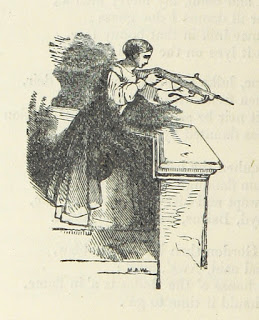This is something of a follow-up to my musings on Concreteness, Inquiry, and Rationalisation. It's not necessary to go back and read the prior post, but it might help to understand the outlook here.
This post's wordy title alludes to a commonplace view that in order to get at "realism" in games, one must add more complicated rules. Of course, to state this view is to dispel it, as everyone knows of games that are nowhere near realistic while still being overly complicated. Rather than bore the reader to death with a purely abstract discussion, I'm going to address the ability scores.
The famous six scores have long been questioned for being nebulous. Even strength is somewhat nebulous - does it mean being big? A high strength to mass ratio? A strong grip? Good core strength? All of these seem to get invoked when talking about what "strength" ought to do, but the score itself lurks in the general area. Similar comments could address the bundles of aptitude summed up by the other ability scores. I think there's good reason for the murkiness - it avoids having an immensely complicated character sheet, if nothing else.
However, that murkiness creates doubt about the interpretation of ability. In most D&Ds (and Fantasy Heartbreakers based on the grand old game), it's assumed that a character's ability scores will play an important part in turn-to-turn gameplay. Strong fighters will be more successful in combat. Dexterous thieves will have a better time opening locks. Intelligent magic-users learn or cast spells more easily. None of this is really rationalised beyond an implicit appeal to "common sense" and when really analysed the connections are fairly arbitrary. For example, why is opening locks a function of dexterity, rather than intelligence? A case can be made for either. Similarly, the importance of strength in combat might have been overstated. The exception here is magic, and that's totally arbitrary because the designer can simply say "that's how magic works!"
Beyond the implementation problem, it's curious that the abilities are more or less locked down even though the aptitudes bundled up in them might vary greatly from week to week or season to season, not to mention the effects of the march of years. These two worries steer me towards understanding the ability scores not as an aggregate of the character's various fields of achieved prowess (class and level can do that) but instead as a quick chart of "potential", "natural ability" or the like. The murkiness I talk about above isn't such a problem for this view, because potential is murky. One never knows exactly how or how well it will be realised.
If you've followed me this far, then the mechanical step should be fairly obvious. A fighting man's strength, a magic-user's memory, and a thief's delicate touch - all of these are trained qualities. Some people might obtain a high level of skill more easily than others, but the amateur is simply outclassed by the professional. So rather than dither around with turn-to-turn modifiers from ability scores to clutter the character sheet, ability (potential!) can be left just to determine whether a character might enter a character class (ability requirements) and how easily they develop their skills (prime requisites).
There are two sticking points. The first and perhaps more obvious is Charisma, which defines character functions that the classes usually don't touch upon. I tend to think that even that should go, and that henchmen numbers and base loyalty should be more strictly dependant upon character level. Reaction adjustments are less of a certainty. I'm not sure that they're necessary in the game, but perhaps they could be a function of class and level (i.e. thieves might be a good choice to tell lies for the party, while the fighting man is a better public speaker).
Secondly, the magnitude of the prime requisite effect is unsettled. In my experience, 5-10% awards are not particularly imposing, but would a 25% or 50% bonus distort the natural progression of the game? I would like to have an answer in hand, but it's not something that can be settled a priori.

No comments:
Post a Comment